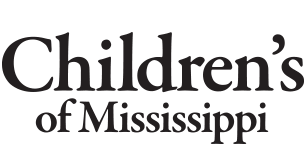I Want To
Contact Us
- For appointments by phone: (601) 984-2700 (Option 1)
- Make an Appointment
Children's Cancer Support Programs
- Children's Cancer and Blood Disorders Home
- Bone Cancer
- Bone Marrow Transplant
- Brain and Central Nervous System (CNS) Cancer
- Germ Cell Tumors
- Hepatoblastoma
- Hodgkin's Lymphoma
- Langerhans Cell Histiocytosis
- Leukemia
- Neuroblastoma
- Non-Hodgkin's Lymphoma (NHL)
- Retinoblastoma
- Soft Tissue Cancer
- Wilms Tumor
- Children's Cancer Support Programs
Family Support
Children's Cancer Center social workers can help provide you with information on many needs ranging from lodging to emotional counseling to education. Your doctor will refer you or you may ask to meet with them. They describe their jobs as providing a roadmap for children and parents as they are treated for cancer, sickle cell or blood-related diseases.
Social workers begin working with patients and their families as soon as cancer is diagnosed. They may begin by gathering information about your family, the type of support you have, the educational needs of your child and resources you have to continue treatment as well as other factors. Once they have that information, they can help you search for resources to meet many of those goals.
Our social workers can offer you and your child ongoing counseling during treatment and provide crisis intervention and grief/bereavement counseling. They are also on hand to guide you through this experience. In fact, they will give you a resource guide on your first visit and are available to answer your questions or help you find who can answer your questions.
Social workers also can answer questions about transportation, lodging, financial resources and wigs for children who have lost their hair.
Resource guide
Soon after your child is diagnosed, your social worker will give you a resource guide and go over the materials with you. This binder is filled with information for children and for families facing cancer treatment for a child.
The binder includes information:
- About cancer and its treatment. Medical information is provided by the Children’s Oncology Group and covers topics ranging from definitions of tests and medical terms to tips for talking to your child about cancer and cancer treatment.
- About lodging either at the Ronald McDonald House or at nearby motels, including some which offer discounts to Children's Cancer Center patients and their families. A staff member will provide you with a letter of proof of hospitalization if you should need it.
- About meeting families and children who have completed cancer treatments. Visits help those newly diagnosed receive firsthand information about our programs and receive encouragement from a family and patient who has completed treatment.
- About hair loss and groups that may help provide wigs or hats for your child.
- On working with siblings of your ill child. The binder includes a referral form to a support site for siblings as well as tips for parents on the challenges their healthy children may face.
Family support
Your child’s care team is ready to help you take advantage of some special programs offered through Children's of Mississippi or by local organizations to help make cancer treatment more tolerable for your child and your family. Those range from granting your child’s wish to providing your child a way to mark his cancer journey. Ask your child’s social worker about these services.
- Wishes
Children with very serious illnesses, such as cancer, may qualify to have a wish granted by a wish-granting organization. Those wishes can range from trips to getting a new laptop or puppy. The effort has helped many children forget they have cancer for a few moments and provided lasting memories for the child and family. - Beaded Journey
When your child is diagnosed with cancer, a social worker will present him with a necklace. At each stop in the journey to be cancer-free, the child will receive a bead signifying one step taken in treatment. Beads, in varying colors and shapes and materials, represent everything from blood draws to surgery. Many parents and children see the necklaces as a physical representation of the courage the child is displaying as he makes this journey and as a symbol of anticipation for a cure. Your child’s necklace will be different from others since each child’s treatment is tailor-made for him. - Child life
Child life staff members work with doctors, nurses and others to help make your child’s stay and treatment flow more easily. Their work may include explaining what’s going to happen to your child or talking to a sibling. It may mean they read a book to your child or provide games to play while receiving treatment. Your child’s doctors and social workers will talk to you about child life services and how you can receive them. - Continuing education
An on-site teacher helps school-age hospitalized children with school assignments so they will not be so far behind when they go home. - UMC Candlelighters
The UMC Candlelighters offer one-on-one support for children and families from the time they get a cancer diagnosis. These families have already made the journey with their own children. In many situations, Candlelighters families offer support for your entire family and not just your child, providing encouragement, acknowledgement of the emotions you and your child will encounter during treatment and “been there” tips as you travel this road. This group also provides multiple needs for pediatric cancer patients, including:- The aquarium in the Children's Cancer Center waiting room.
- A break room for parents on the hospital's oncology floor. Candlelighters provides coffee and tea and has plans to install a washer and dryer for families facing a lengthy stay.
- Materials for each child’s Beaded Journey necklace.
- Paying for the stay of a cancer patient’s family at Ronald McDonald house and for a parent’s meal while the child is hospitalized.
- A college scholarship available to Children's Cancer Center patients who are enrolling in post-high school classes.
- Providing stipends for families of children undergoing bone marrow or stem cell transplants. The stipends help cover some costs not met by other means.
Caring Bridge
This website offers families a way to post updates about their child’s illness so family and friends can keep up with care and progress. It also allows those family and friends to send their thoughts and encouragement to you and your child. The resource guide provided by our social workers includes information on Caring Bridge.
Lodging
The Ronald McDonald House offers lodging for families of children who are hospitalized or receiving treatment here. If you are coming from out of town and must spend the night, ask your Children's Cancer Center social worker for a referral to the house.
This home, on the UMMC campus, provides overnight lodging with a bedroom and bath for families whose children are hospitalized or must be in Jackson for treatment. Families share common areas such as the kitchen, living room, laundry room and dining area.
The UMC Candlelighters picks up the cost (an $8 per night donation is requested) for pediatric cancer patients and their families.
If you are staying elsewhere in town, your social worker may be able to refer you to use the laundry facilities at Ronald McDonald house. Our social workers also can provide you with a list of area hotels which offer discounts to families of pediatric patients. Find out more by asking your social worker.
Chaplains
Chaplains in UMMC's pastoral services are available to meet with you and your family at the hospital or at Jackson Medical Mall upon request. Offices are at University Hospital, where you also can visit our chapel and quiet room. Chaplains can pray with you, counsel you and help you and your family with sacraments, religious rites and rituals, end-of-life issues and grief care and support. If you prefer, they will help you contact a pastor of your faith in the community.
Let your social worker know you want to speak to a chaplain and they can call for you. You also may call the pastoral office at (601) 815-2112 or the UMMC operator at (601) 984-1000.
Counseling
Children's Cancer Center offers an array of counseling services for children and their families. A psychologist is part of your child’s cancer care team and works with a social worker, teacher, art therapist and many others to make sure the emotional, physical and social needs of each patient are met. The counseling team regularly:
- Screens children for changes in intellectual function that can be caused by some treatments.
- Works with psychology and counseling students who provide hours of one-on-one time for patients. This helps relieve boredom and increase social interaction.
When your child comes to the center, you probably will be referred to one of the counselors. If not, you can ask your social worker or nurse for a referral.
Financial assistance
Treatment will not be denied any Mississippi child because his family cannot pay. Our billing department can provide information on bills and insurance the hospital accepts. Your Children's Cancer Center social worker also may be able to direct you to local nonprofit organizations which help with some small needs.



 UMMC
UMMC